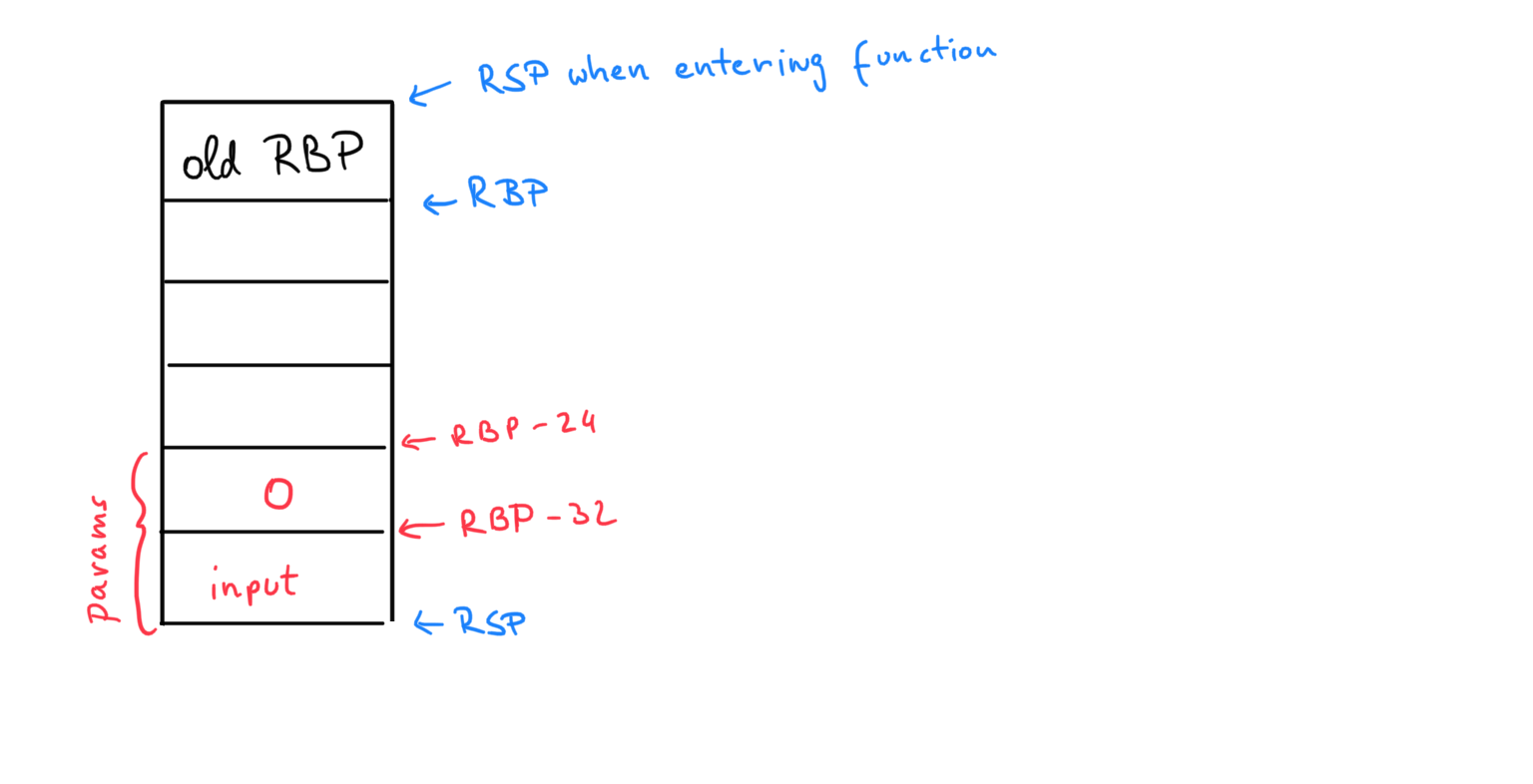I believe this program is also not raised correctly because of the same issue: https://godbolt.org/z/sdred1M3M (-O2 optimized)
Open martin-fink opened 3 years ago
I believe this program is also not raised correctly because of the same issue: https://godbolt.org/z/sdred1M3M (-O2 optimized)
Minimal example:
Output
Running the original and raised binary produces the following output:
Machine code
Compiled with clang-13
-O0Raised bitcode
Stack layout of main
Stack just before calling
test:The total stack size used by the function is 40 bytes, 8 bytes by
push rbp, while a further 32 bytes are allocated withsub rsp, 32. Mctoll incorrectly assumes thatRBPpoints to the top of the stack (RSP when entering the function), which is off by 8 bytes, as the new value ofRBPis set afterpush rbp.I've only observed this bug in programs compiled with
-O0, as (as far as I've seen) the stack is accessed relative toRSPwith higher optimizations: https://godbolt.org/z/3vn6sMPPd. While I have been trying to fix this issue, I've put it on hold because of this.